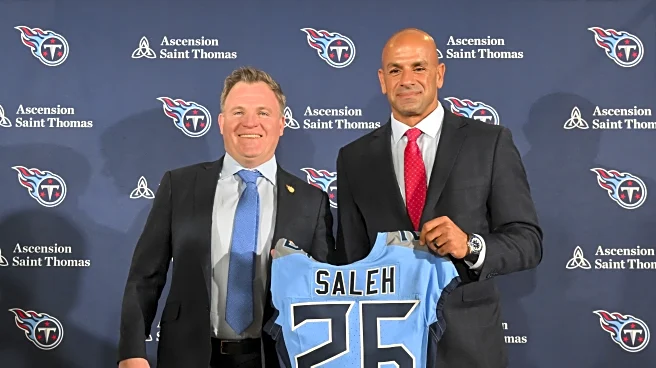What's Happening?
KimStim, a New York-based film distributor, has acquired the Brazilian film 'Manas' for a limited U.S. release. The film, directed by Marianna Brennand and executive produced by Walter Salles and the Dardenne brothers, won the Best Director Award at Venice Days 2024. 'Manas' tells the story of Marcielle, a 13-year-old girl from Marajó Island, who confronts societal violence against women and children. The film has already seen success in Brazil, with a 13-week run in over 70 theaters nationwide. KimStim plans to release the film in up to 20 U.S. cities and is pushing for it to represent Brazil at the Oscars.
Why It's Important?
The acquisition of 'Manas' by KimStim highlights the growing interest in international films within the U.S. market, particularly those that address pressing social issues. The film's focus on violence against women and children resonates with global audiences, potentially influencing social discourse in the U.S. The involvement of renowned producers like Walter Salles and the Dardenne brothers adds credibility and visibility, increasing its chances for an Oscar nomination. Success in the U.S. could further elevate the film's profile, encouraging more international collaborations and distribution deals.
What's Next?
KimStim is preparing for the film's U.S. release, with dates to be announced soon. The distributor is committed to supporting 'Manas' through the awards season, aiming for an Oscar nomination. The film's entry into the North American market could spark discussions on its themes, potentially influencing public policy and societal attitudes towards violence against women and children. The film's success could also pave the way for more international films to enter the U.S. market, broadening the scope of stories and perspectives available to American audiences.
Beyond the Headlines
The release of 'Manas' in the U.S. could have deeper implications for the film industry, particularly in terms of representation and diversity. By showcasing stories from underrepresented regions like the Amazon, the film challenges the dominance of Western narratives in cinema. It also highlights the power of film as a tool for social change, encouraging audiences to engage with complex issues. The film's success could inspire other filmmakers to explore similar themes, contributing to a more inclusive and socially aware film industry.










